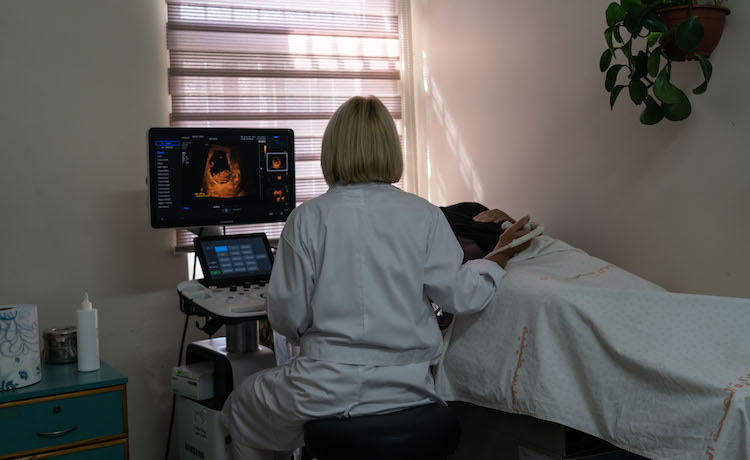News
“One society, free from violence”: Training providers on caring for survivors of sexual violence in Palestine
- 27 March 2023
News
JERICHO, Palestine – "I grew up in a patriarchal society where women have always been left behind, and this shaped my values and behaviour,” said Ayman Lubbad, a gender-based violence expert at Jericho’s government hospital.
Around the world, patriarchal systems of power have long reinforced norms and ideas that drive gender inequality and its devastating manifestations, including gender-based violence. These issues impact millions of women and girls every year; in fact, one third of women globally have experienced intimate partner violence, non-partner sexual violence or both.
In Palestine, research suggests that traditional patriarchal attitudes have combined with the effects of the Israeli occupation to create an enabling environment for oppression against women and girls. In 2017, 17 per cent of men in Palestine reported having committed physical violence against a female partner, and in 2022, 9 per cent of married women said they had been subjected to sexual abuse.
Survivors of gender-based violence need access to safe, high-quality health care and psychosocial support. But Palestine’s health care system has been severely weakened by the Israeli occupation, and social norms there often pressure women to keep gender-based violence a secret. Stigma also surrounds mental health services.
Amid these challenges, UNFPA and Palestine’s Ministry of Health launched a new programme to educate midwives, obstetricians, doctors, and others on how to care for patients who have experienced sexual violence.
Mr. Lubbad attended several of these trainings on the clinical management of rape and intimate partner violence in 2022.
“I learned numerous skills on how to approach and treat survivors of violence,” he said. “Among other trainers, we have a motto: We protect human rights and move towards gender equality. We want one society – our society – free from violence.”
A virtuous cycle
At the UNFPA training sessions on the clinical management of rape and intimate partner violence, attendees learn about the pillars of care for treating survivors: First-line support, informed consent, physical exams, medical treatment and psychological follow-up.

Some of these practices may be new to health-care providers. “When I was a trainee, I had never dealt with rape before from a clinical perspective,” said Munira Al-Abed, a medical officer with the United Nations Relief and Works Agency for Palestine Refugees .
“I immediately learned that creating a supportive work environment is the very first step to coping with the issue.”
After completing a series of workshops, trainees can become certified trainers. In this way, UNFPA’s training programme encourages a virtuous cycle in which teachings addressing gender-based violence are enabled to spread farther and wider.
From its launch in 2020, the programme has been rolled out to more than 30 health facilities and drug rehabilitation centres across Gaza and the West Bank. Nearly 150 health service providers have participated.
“Today, I am much more confident as a trainer than before,” Ms. Al-Abed said. “I look forward to providing trainees with the right skills to perform their job at their best and advocate against violence.”
Advocating for change
Treating survivors of gender-based violence is just one way of addressing this harmful practice. To truly put an end to the issue, societies around the world, including in Palestine, must make cultural shifts away from norms that perpetuate gender inequality.
“Palestinian women and girls deserve a life with dignity – and so UNFPA will continue to focus on capacity building and quality referral services in the medical, legal and social systems,” said UNFPA Palestine Country Representative Dominic Allen.
UNFPA’s work, including its training programming, aims to build Palestine’s body of advocates against gender-based violence, who will help shatter the silence around these rights violations.
“There is nothing that makes me prouder than transferring my knowledge to others and advocating against negative social norms as a health worker,” said Mr. Lubbad.